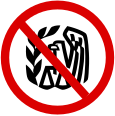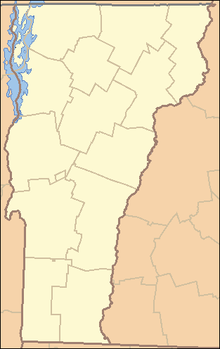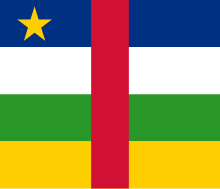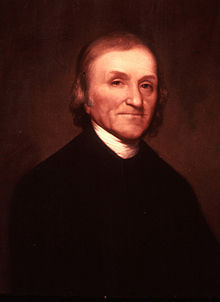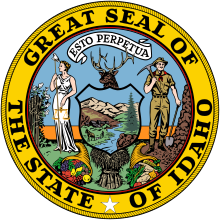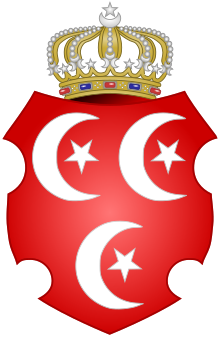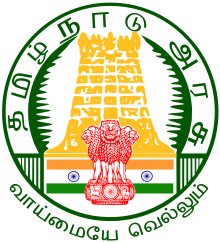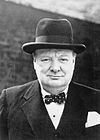Portal:Politics
| Main | Topics and categories | Tasks and projects |
The Politics portal
Politics (from Ancient Greek πολιτικά (politiká) 'affairs of the cities') is the set of activities that are associated with making decisions in groups, or other forms of power relations among individuals, such as the distribution of resources or status. The branch of social science that studies politics and government is referred to as political science.
It may be used positively in the context of a "political solution" which is compromising and non-violent, or descriptively as "the art or science of government", but also often carries a negative connotation. The concept has been defined in various ways, and different approaches have fundamentally differing views on whether it should be used extensively or in a limited way, empirically or normatively, and on whether conflict or co-operation is more essential to it.
A variety of methods are deployed in politics, which include promoting one's own political views among people, negotiation with other political subjects, making laws, and exercising internal and external force, including warfare against adversaries. Politics is exercised on a wide range of social levels, from clans and tribes of traditional societies, through modern local governments, companies and institutions up to sovereign states, to the international level.
In modern nation states, people often form political parties to represent their ideas. Members of a party often agree to take the same position on many issues and agree to support the same changes to law and the same leaders. An election is usually a competition between different parties.
A political system is a framework which defines acceptable political methods within a society. The history of political thought can be traced back to early antiquity, with seminal works such as Plato's Republic, Aristotle's Politics, Confucius's political manuscripts and Chanakya's Arthashastra. (Full article...)
Selected article
The FairTax is a proposed change to the tax laws of the United States that would replace the Internal Revenue Service (IRS) and all federal income taxes (including corporate taxes and capital gains taxes), as well as payroll taxes (including Social Security and Medicare taxes), gift taxes, and estate taxes with a national retail sales tax. Its enacting legislation, the Fair Tax Act, is pending in the United States Congress. The tax would be levied once at the point of purchase on all new goods and services. The proposal also calls for a monthly payment to all households of citizens and legal resident aliens (based on family size) as an advance rebate of tax on purchases up to the poverty level. The sales tax rate, as defined in the legislation, is 23% of net prices which includes the tax (23¢ out of every $1 spent—calculated like income taxes), which is comparable to a 30% traditional sales tax (23¢ on top of every 77¢ spent). With the rebate taken into consideration, the effective tax rate would be progressive on consumption and could result in a federal tax burden of zero or less. However, opponents of the tax argue that while progressive on consumption, the tax would be regressive on income, and would accordingly decrease the tax burden on high income earners and increase the tax burden on the middle class.
Featured picture
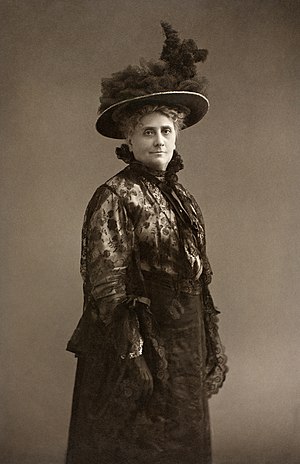
Gina Krog (20 June 1847 – 14 April 1916) was a Norwegian suffragist, teacher, liberal politician, writer and editor. She played a central role in the Norwegian women's movement from the 1880s until her death, notably as a leading campaigner for women's right to vote. In 1884, Krog co-founded the Norwegian Association for Women's Rights with liberal MP Hagbart Berner. Over the next two decades, Krog co-founded the Women's Voting Association, the National Association for Women's Suffrage, and the Norwegian National Women's Council, spearheading the presentation of women's suffrage proposals to the Storting (the Norwegian parliament). She was an early member of the Liberal Party and served as a deputy member of its national board.
Selected quote
Selected biography
Sir Winston Leonard Spencer-Churchill, (1874 – 1965) was a British politician and statesman known for his leadership of the United Kingdom during the Second World War. He is widely regarded as one of the great wartime leaders. He served as Prime Minister twice (1940–45 and 1951–55). A noted statesman and orator, Churchill was also an officer in the British Army, a historian, a writer, and an artist. During the 1930s, Churchill took the lead in warning about the danger from Hitler and in campaigning for rearmament. On the outbreak of World War II, he was again appointed First Lord of the Admiralty. Following the resignation of Neville Chamberlain on 10 May 1940, Churchill became Prime Minister. His steadfast refusal to consider defeat, surrender or a compromise peace helped inspire British resistance, especially during the difficult early days of the War when Britain stood alone in its active opposition to Hitler. Churchill was particularly noted for his speeches and radio broadcasts, which helped inspire the British people.
Did you know (auto-generated) -

- ... that after being arrested for organizing a general strike in 1920, S. Girinis was sent to the Soviet Union following a Soviet-Lithuanian exchange of political prisoners?
- ... that Dante used the third circle of hell to discuss contemporary Florentine politics rather than the sin of gluttony?
- ... that politics in The Simpsons have caused controversy in Argentina, Australia, Brazil, and Japan?
- ... that Ken Russell went on international yo-yo tours before turning to politics?
- ... that after a career as political journalist, Peter Merseburger wrote biographies of Der Spiegel founder Rudolf Augstein and chancellor Willy Brandt?
- ... that reporter O. Kay Henderson, who has interviewed U.S. presidential candidates, is considered by national media to be an Iowa political authority?
More did you know...
- ...that a logocracy is government through words?
- ...that the Jewish Socialist Workers Party in the Russian Empire mobilized 3,000 of its cadres in self-defense militias during 1906?
- ...that the liberal film company Brave New Films has produced full-length videos and paper advertisements in addition to the viral videos for which it is known?
- ...that Mussolini's Quota 90 fixed the lira exchange rate against the pound sterling at the prevailing rate from five years earlier, when he assumed power?
- ...that the energy lobby contributed 19 million dollars to United States political campaigns in the 2006 election cycle?
- ...that the lifelong Democrat Jim Naugle is in his sixth straight term as the Mayor of Fort Lauderdale and supported only Republicans for President since 1968?
- ...that just before the invasion of Poland, members of the German minority from Deutscher Volksverband were trained in sabotage by the Abwehr agents arriving in Poland from Germany?
- ...that the controversial Iraq De-Ba'athification policy banned anyone affiliated with the Ba'ath Party from working in the public sector?
In this month
- April 1, 1979 – Iran's government becomes an Islamic Republic by a 98% vote, overthrowing the Shah officially.
- April 9, 1948 – the period known as La Violencia begins with the assassination of Colombian Liberal Party leader Jorge Eliécer Gaitán. For the next ten years Liberals, Communists and Conservatives would fight each other in the conflict.
- April 9, 2003 – Government of Saddam Hussein overthrown by American forces in Iraq.
- April 19, 2006 – Han Myung-sook becomes South Korea's first female Prime Minister.
- April 24, 2005 – Presidential elections in Togo return Faure Gnassingbe to power two months after he was installed by the military following the death of his father, Gnassingbé Eyadéma.
- April 28, 1937 – Saddam Hussein, the President of Iraq was born.
- April 30, 1945 – Adolf Hitler and his wife Eva Braun, commit suicide as the Red Army approached the Führerbunker in Berlin. Karl Dönitz succeeds Hitler as President of Germany; Joseph Goebbels succeeds Hitler as Chancellor of Germany.
News and Current events
- August 11: 4 local government areas in New South Wales, Australia locked down after COVID-19 case
- August 11: Australia: AstraZeneca vaccine access expanded by Victorian government
- August 1: Australia: Victorian lockdown lifted
- July 29: Tunisia's president dismisses prime minister, suspends parliament
- July 25: Australia: Wikinews interviews Reg Kidd, mayor of the City of Orange, about COVID-19 lockdown and local government
- July 23: South Australia enters week-long lockdown to contain COVID-19 Delta variant spread
- July 21: Technological University Dublin senior lecturer Dr Lorcan Sirr speaks to Wikinews on housing market in Ireland
- July 21: Three rural councils in New South Wales, Australia enter 7-day lockdown
- July 21: Australia: Victoria lockdown extended by a week with 85 active cases recorded
- July 15: California governor signs new state budget, eligible Californians to get stimulus payments
Topics and categories
General images
Related portals
Associated Wikimedia
The following Wikimedia Foundation sister projects provide more on this subject:
-
Commons
Free media repository -
Wikibooks
Free textbooks and manuals -
Wikidata
Free knowledge base -
Wikinews
Free-content news -
Wikiquote
Collection of quotations -
Wikisource
Free-content library -
Wikiversity
Free learning tools -
Wiktionary
Dictionary and thesaurus

